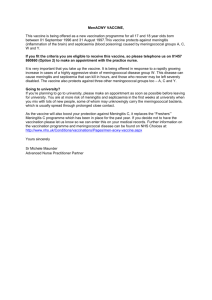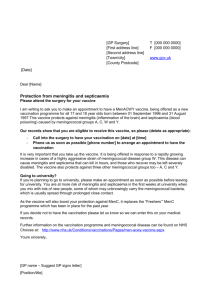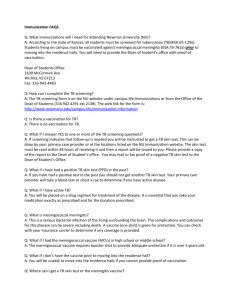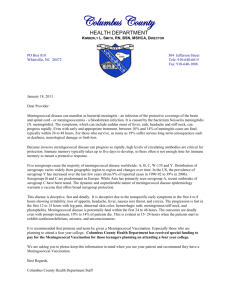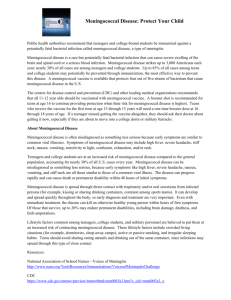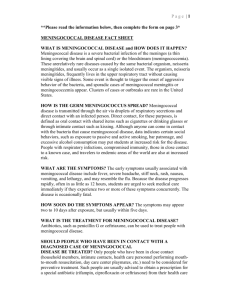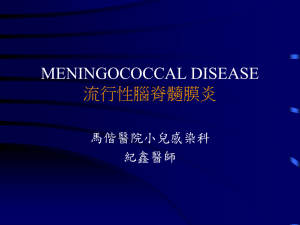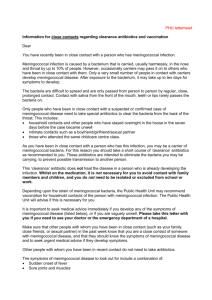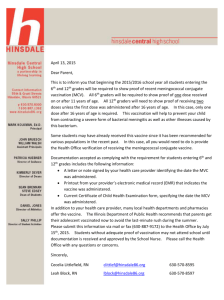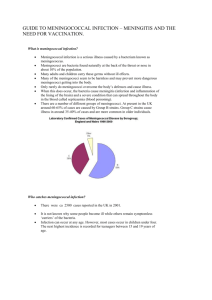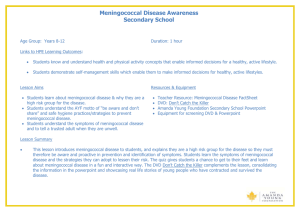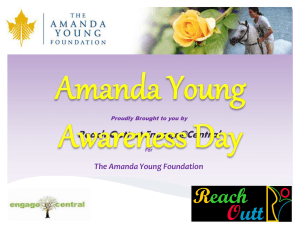Press Conference on Meningococcal Fatality in a CSU student
advertisement
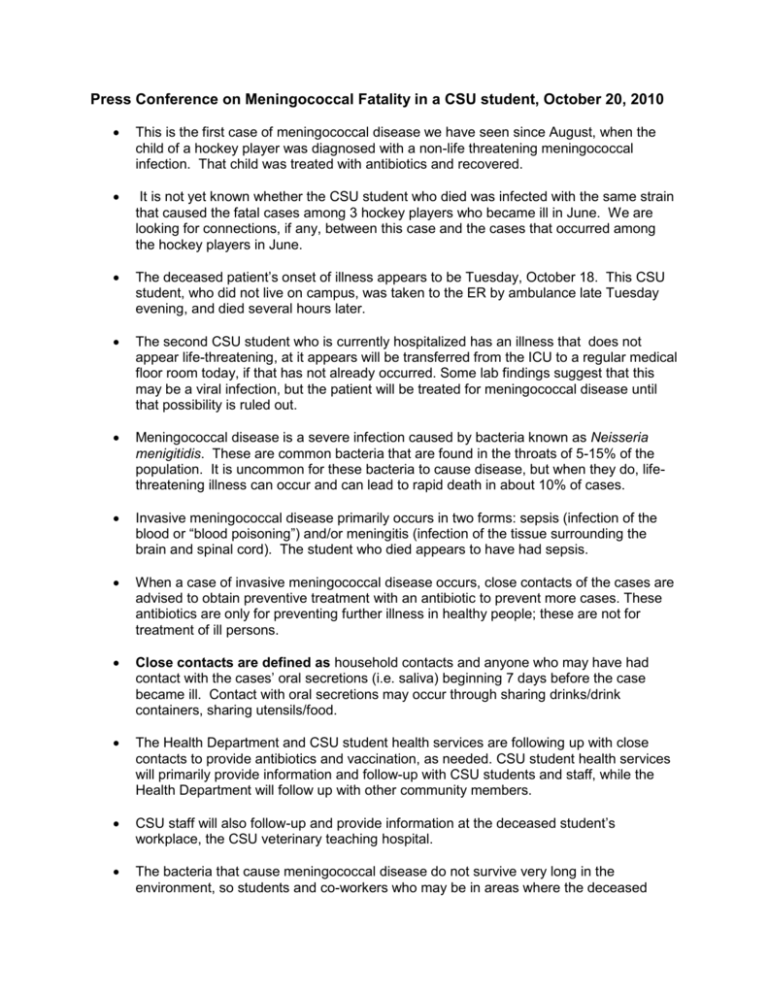
Press Conference on Meningococcal Fatality in a CSU student, October 20, 2010 This is the first case of meningococcal disease we have seen since August, when the child of a hockey player was diagnosed with a non-life threatening meningococcal infection. That child was treated with antibiotics and recovered. It is not yet known whether the CSU student who died was infected with the same strain that caused the fatal cases among 3 hockey players who became ill in June. We are looking for connections, if any, between this case and the cases that occurred among the hockey players in June. The deceased patient’s onset of illness appears to be Tuesday, October 18. This CSU student, who did not live on campus, was taken to the ER by ambulance late Tuesday evening, and died several hours later. The second CSU student who is currently hospitalized has an illness that does not appear life-threatening, at it appears will be transferred from the ICU to a regular medical floor room today, if that has not already occurred. Some lab findings suggest that this may be a viral infection, but the patient will be treated for meningococcal disease until that possibility is ruled out. Meningococcal disease is a severe infection caused by bacteria known as Neisseria menigitidis. These are common bacteria that are found in the throats of 5-15% of the population. It is uncommon for these bacteria to cause disease, but when they do, lifethreatening illness can occur and can lead to rapid death in about 10% of cases. Invasive meningococcal disease primarily occurs in two forms: sepsis (infection of the blood or “blood poisoning”) and/or meningitis (infection of the tissue surrounding the brain and spinal cord). The student who died appears to have had sepsis. When a case of invasive meningococcal disease occurs, close contacts of the cases are advised to obtain preventive treatment with an antibiotic to prevent more cases. These antibiotics are only for preventing further illness in healthy people; these are not for treatment of ill persons. Close contacts are defined as household contacts and anyone who may have had contact with the cases’ oral secretions (i.e. saliva) beginning 7 days before the case became ill. Contact with oral secretions may occur through sharing drinks/drink containers, sharing utensils/food. The Health Department and CSU student health services are following up with close contacts to provide antibiotics and vaccination, as needed. CSU student health services will primarily provide information and follow-up with CSU students and staff, while the Health Department will follow up with other community members. CSU staff will also follow-up and provide information at the deceased student’s workplace, the CSU veterinary teaching hospital. The bacteria that cause meningococcal disease do not survive very long in the environment, so students and co-workers who may be in areas where the deceased student took classes, recreated, or worked should not be concerned about exposure from environmental surfaces. There are 5 “groups” of meningococcal bacteria, A,B,C, Y and W-135. The state laboratory will do further testing to see if the bacteria causing the students death matches the prior Fort Collins cases, and whether the strain is on covered by the meningococcal vaccine. These results may not be available until next week. There is a vaccine to prevent meningococcal disease from 4 of the 5 serogroups A,,C , Y and W-135. There is no vaccine for the B group, but none of the recent cases have been in this group. Meningococcal vaccine is generally recommended to all children once they reach middle school age, as well as for unvaccinated freshman going to college, particularly if they will be living with large numbers of people in dorms. The vaccine is generally available from most family physicians and pediatricians. At this time the Health Department has limited supplies of meningococcal vaccine, which will be targeted to the close contacts of the student who died. Other local health care providers (primarily family practitioners and pediatricians) often offer this vaccine, and can provide it to others interested in being vaccinated.
